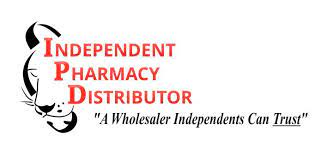
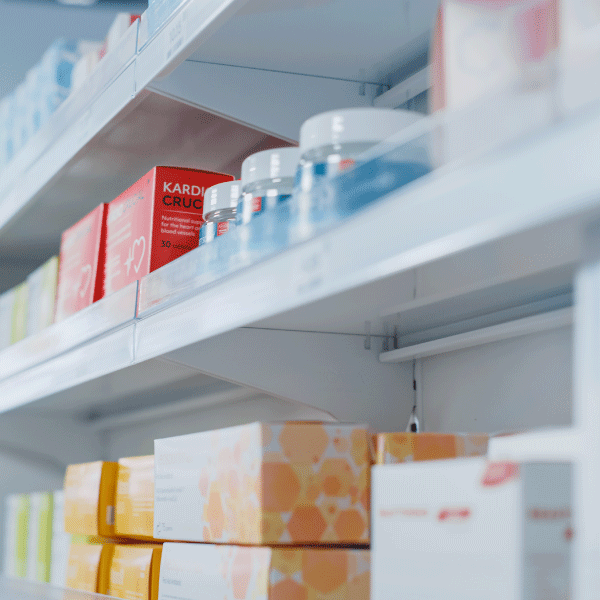
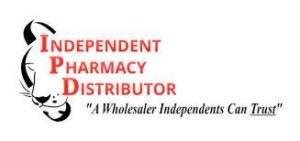
Independent Pharmacy Distributor is a fast growing independently owned pharmaceutical wholesale business located in Lexington, NC. Classified as a secondary wholesaler, IPD distributes generic drugs, over-the-counter, brands and controlled substances to a variety of customers across the United States. IPD’s customers are mostly independent pharmacies, small chains, exporters and other distributors.
Russel Patterson, Operations, IPD has a background in the pharmacy side of the industry and knew what to expect as a wholesaler entering the market. When working to start the business, Russell knew that achieving their NABP (VAWD) accreditation was a high priority and that deciding to work with controls was going to be a major commitment. Nevertheless, he was confident in his ability to help run a successful business and set out to find the right solution to do so.

The pharmaceutical industry is a complicated network of manufacturers, distributors/wholesalers, and customers (including pharmacies, hospitals, private clinics and other distributors). There are typically 2 types of wholesale and distribution businesses in the supply chain: primary and secondary.
Primary distributors are comprised of what’s known in the industry as the big 3 – McKesson Corp., Cardinal Health Inc, and AmerisourceBergen Corp. These primary wholesalers have relationships with manufacturers to buy direct and then they sell direct to pharmacies through their own network of distributors. Secondary wholesalers then are smaller distributors that supply product when primary distributors are unable to do so, and they pick up the business that the larger companies leave behind because of their purchase volume requirements.
As a secondary distributor in the pharmaceutical industry, there are typically 2 options for purchasing inventory:
Although 99% of secondary wholesalers end up buying from primary distributors, this ends up being a self-limiting process as it cuts into their own profitability. Primaries are unable to sell product at significantly lower rates as they don’t want to cut into their own margins. Ultimately all wholesalers want to be able to buy directly from the manufacturer but this will never happen unless they get the right software system, and become NABP (VAWD) accredited.
Primary wholesalers make it difficult for secondary wholesalers to get business direct from pharmacies due to the need to maintain ratios of product. As part of the industry regulations, pharmacies must maintain specific ratios of product when purchasing from distributors – in terms of generics and branded controlled substances. Primary wholesalers use this as leverage to get pharmacies to purchase their generics by refusing to only sell one or the other, ensuring that their customers have a balance branded/generic ratio.
Even though inventorying controlled substances comes with its own set of regulation, it gives secondary wholesalers the leverage they need to sell to pharmacies. If you’re unable to provide customers with the variety of product that they need, it becomes difficult to compete in the market.
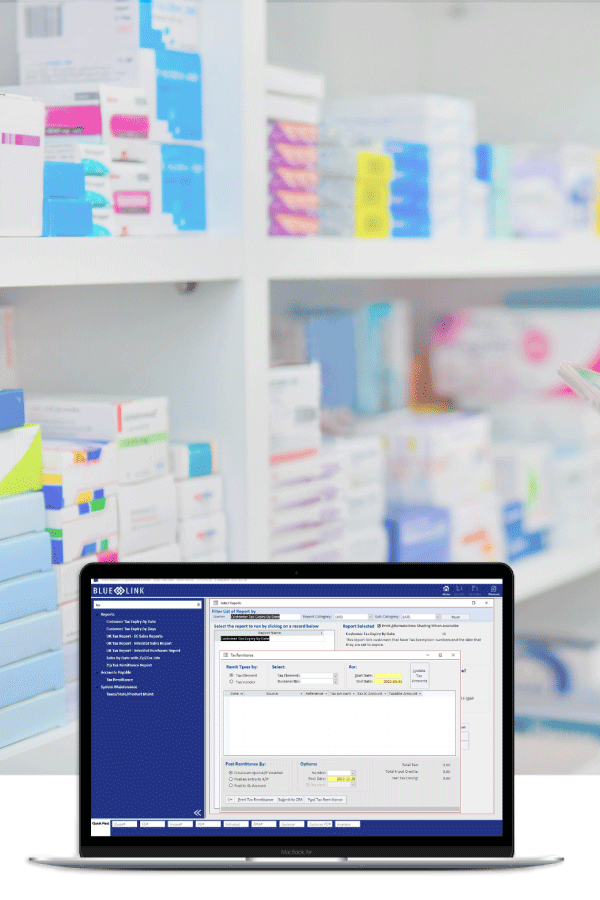
For IPD the solution was obvious – find a software system that can help them achieve their NABP (VAWD) accreditation and provides all the industry specific functionality needed to be able to sell controls. However, this was easier said than done, as many software vendors in the industry only provide a small piece of the puzzle – where they excelled in inventory and product tracking, they were lacking in accounting and order management. Then IPD found Blue Link’s Pharmaceutical Inventory Management Software.
Blue Link started as an inventory and accounting ERP system designed for wholesalers and distributors. However, after noticing an opportunity in the market, Blue Link began to develop out highly specialized features specific for pharmaceutical wholesalers – at an affordable price. Blue Link knew that start-up businesses do not have unlimited funds, and was able to design an all-in-one system to address industry-specific needs, without the big price tag. Throughout the process of searching for and implementing Blue Link, Russel met with the Blue Link team extensively to hash out the details of the specific requirements needed to adhere to industry regulations and grow his business – and continues to work closely with Blue Link today. With input from Russel, Blue Link was able to develop the system to help achieve NABP (VAWD) accreditation within a shortened time period. In addition, Blue Link provides IPD with all of their reporting, lot tracking and accounting needs.
Continuing to build on this close relationship, Blue Link and IPD managed to extend the pharmaceutical functionality beyond the basics with the addition of CSOS. With CSOS, IPD can offer its customers a value-add that makes it easier for them to electronically submit Schedule II Controlled Substance orders. Many pharmacies refuse to work with distributors who do not have CSOS capabilities as the amount of resources required to manually submit DEA 222 forms is not worth it.
The implementation of Blue Link itself took place prior to the company’s launch. IPD worked closely with its suppliers and Blue Link to meet specific requirements prior to placing their first order for product and the company was fully DEA compliant by the time of opening day.
This guide include tips for distributors on the history of the DSCSA and how to be prepared for the November Deadline

The new system implementation was a success. With the help of Blue Link, IPD was able to achieve its NABP (VAWD) accreditation in 10 months as opposed to the usual 1-2 years. The implementation of CSOS has also given IPD a huge advantage and according to Russel, “there is no reason to calculate the ROI in terms of time savings. If a wholesaler is doing this much sales in controls, they would need to have 1 person doing 222 reports all day long.” CSOS has also allowed IPD to expand its customer base and find new business which has led to an increase in sales of 42.5% in one month alone!
As a start-up company, the first couple of years can make or break a business. IPD continues to see favorable results with Blue Link and the original number of 4 system users has since grown to 35 and counting – all within a couple of years. With this success, IPD is now able to work directly with more and more pharmacy customers and has big plans for continued growth in the future. Simply put, as Russel says, “software makes it possible.”
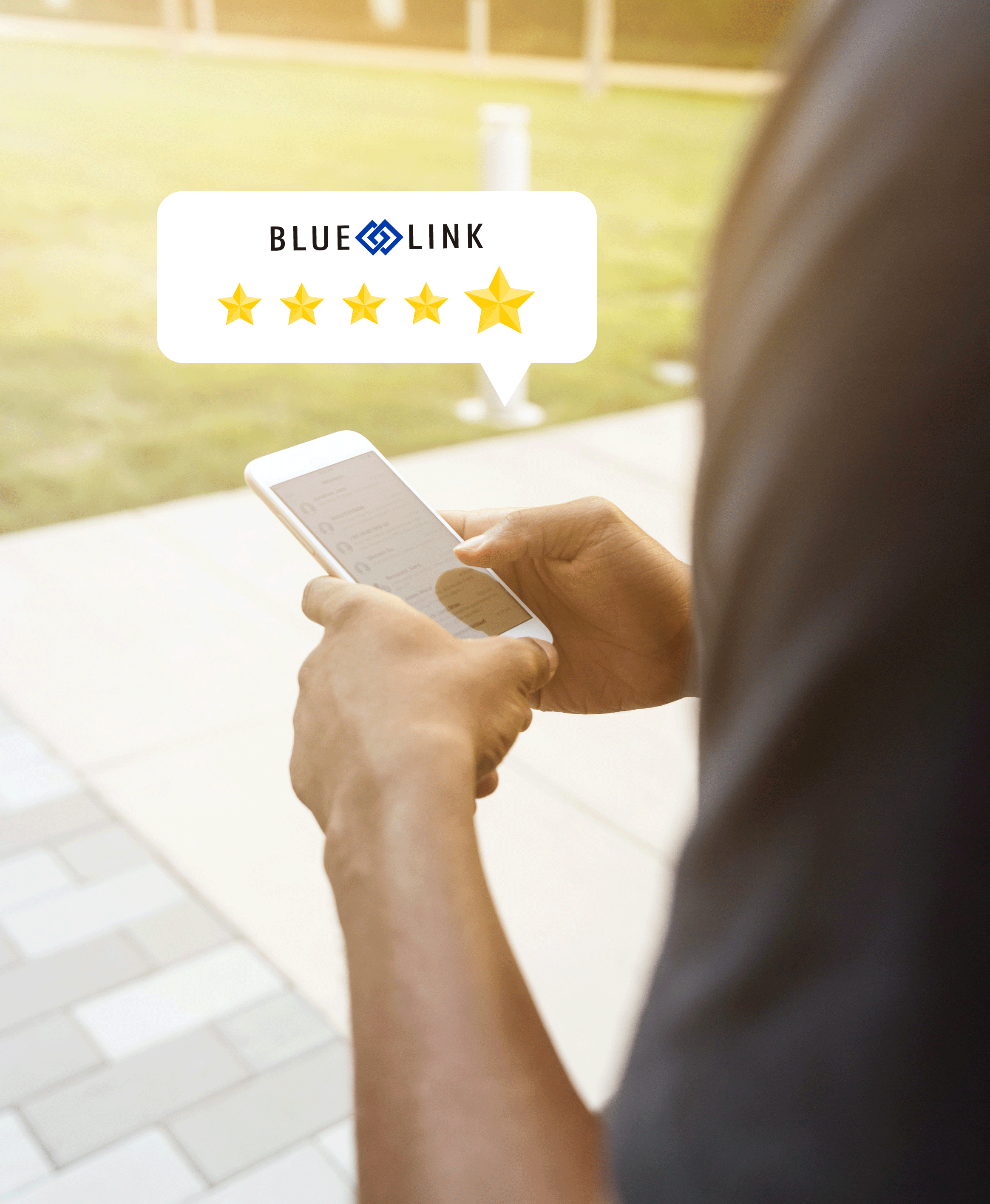
“With the help of Blue Link CSOS we saw a 42.5% increase in sales to $1.425M from April 2017 to May 2017.”
